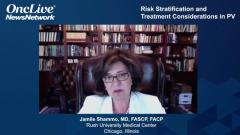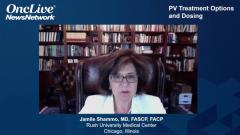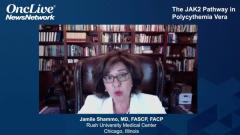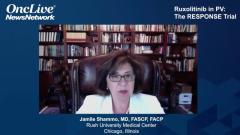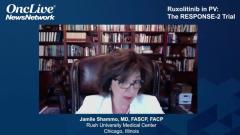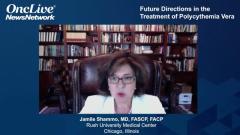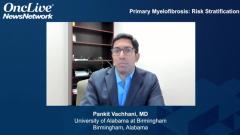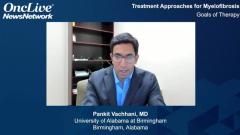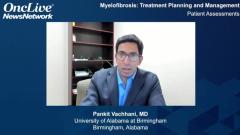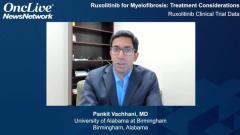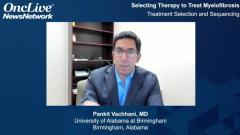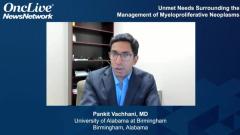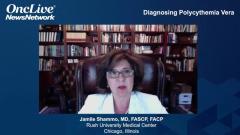
Selecting Therapy to Treat Myelofibrosis
Patient factors and disease characteristics that impact decisions to treat patients with myelofibrosis with ruxolitinib or fedratinib.
Episodes in this series

Pankit Vachhani, MD: Fedratinib is a JAK2 inhibitor that was recently FDA approved for treatment of patients with myelofibrosis, intermediate-2 and high risk. We consider using this drug either in the frontline space or in a setting where ruxolitinib has previously been used and failed the patient in giving them a long-term benefit.
When a patient is newly diagnosed with myelofibrosis, if their platelet count is higher than 50 x 109 per liter and they happen to be intermediate-2 or high risk in terms of their risk stratification, one could either use ruxolitinib or fedratinib in that setting. A key thing to consider here is the need for an assessment for stem cell transplant. Should a patient progress after using the first JAK2 inhibitor, they could use the alternative JAK2 inhibitor, or consider clinical trials at that point as well.
If, on the other hand, a patient has lower-risk myelofibrosis, the key thing to identify is whether they are symptomatic. For patients who are symptomatic, one could use ruxolitinib to alleviate the patient’s symptoms despite the disease being lower risk in nature. If one should need to use alternative agents, these would include drugs like hydroxyurea or interferon. In the event that the patients have lower-risk myelofibrosis and are asymptomatic, one may choose to monitor the patients every few months to assess their symptomatology, spleen volume or length, and assess their platelet counts.
TRANSCRIPT EDITED FOR CLARITY


